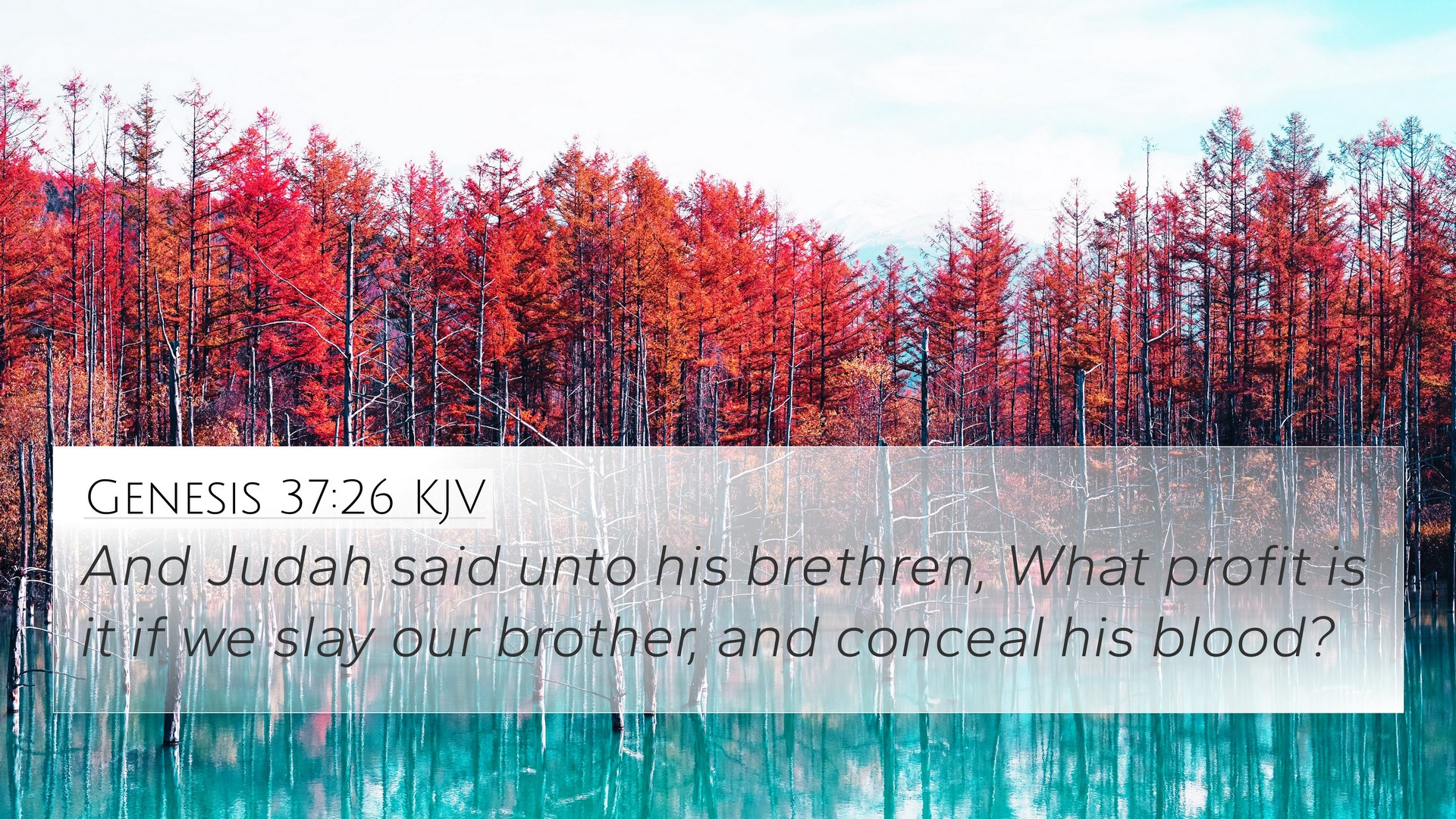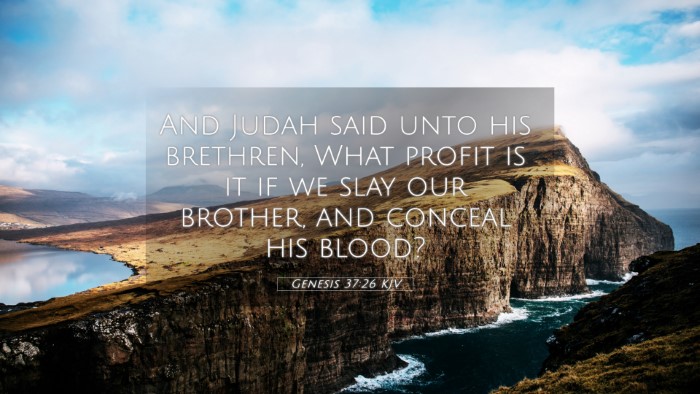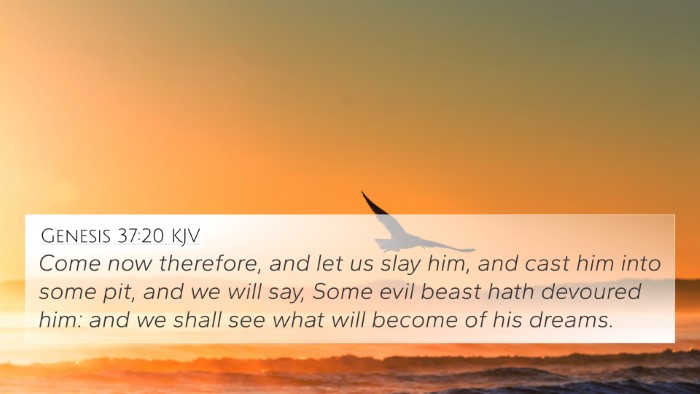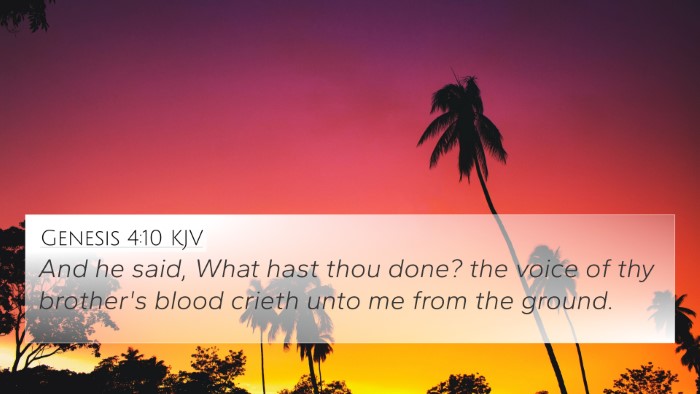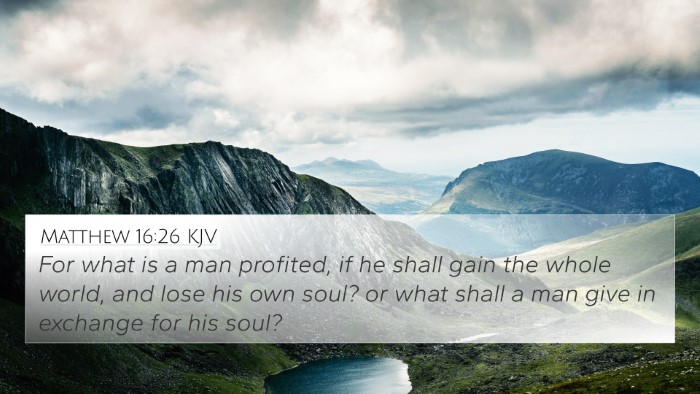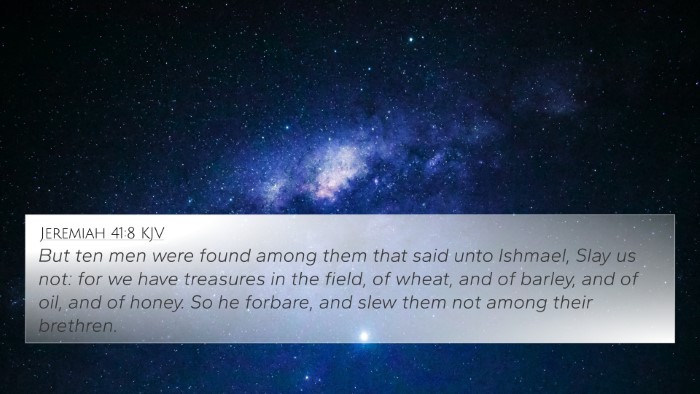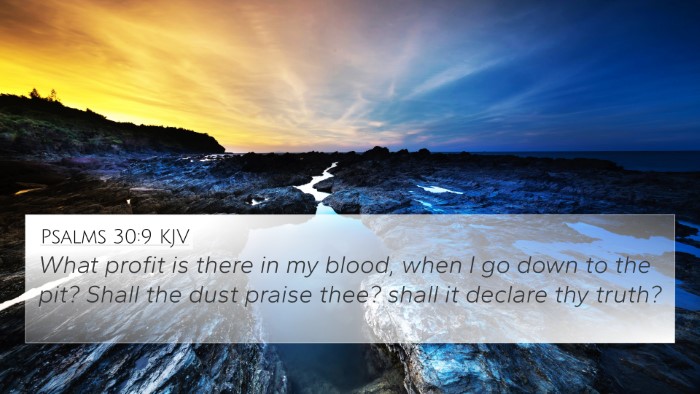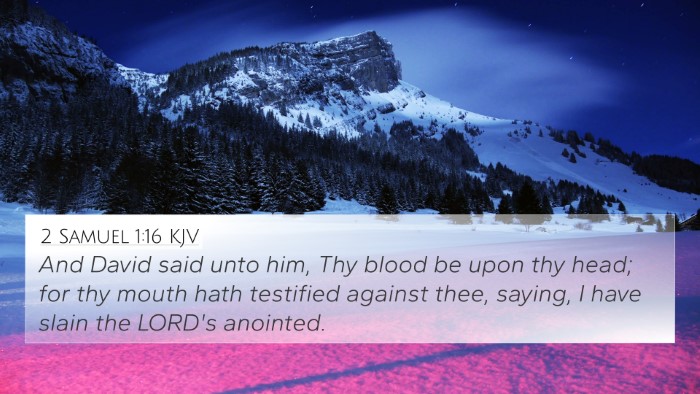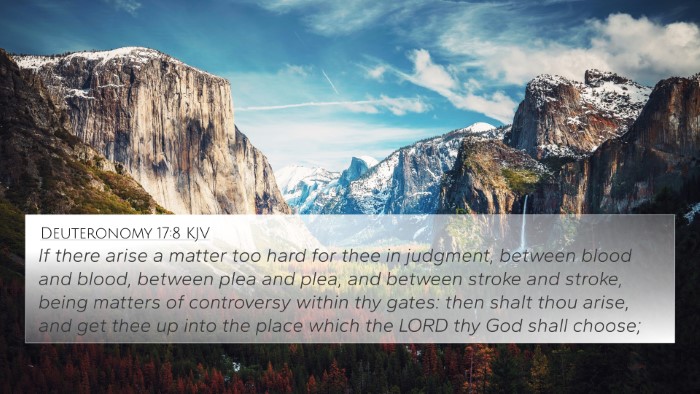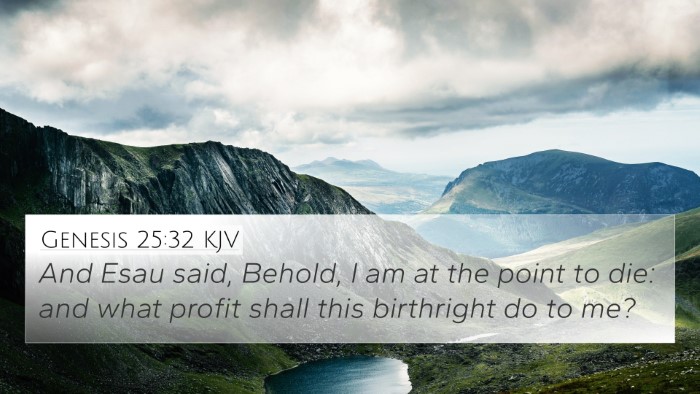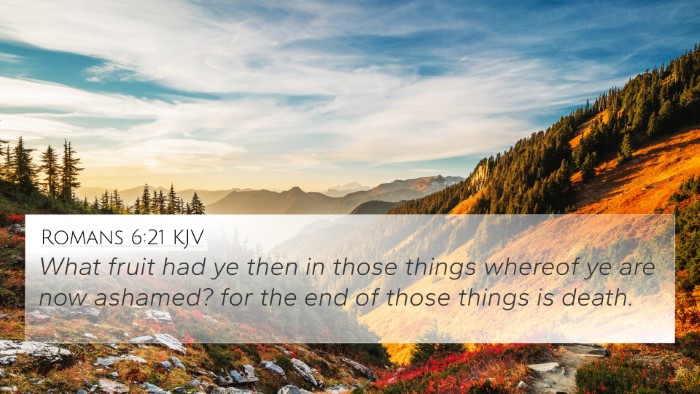Understanding Genesis 37:26
Verse: "And Judah said unto his brethren, What profit is it if we slay our brother, and conceal his blood?" (Genesis 37:26)
Contextual Background
This verse occurs in the narrative of Joseph's life, where he is sold into slavery by his brothers. Judah's suggestion to refrain from killing Joseph showcases the moral dilemma the brothers face regarding their actions.
Summary of Meaning
The verse reveals a moment of deliberation among Joseph's brothers, highlighting themes of brotherhood, morality, and the consequences of their decisions. Judah's voice emerges as a pivotal character, showcasing a sense of caution and the need for profit versus moral action.
Commentary Insights
Matthew Henry’s Commentary
Henry emphasizes the conflict within the brothers as they weigh their motives. He suggests that Judah's question reflects a hint of conscience. Judah, acting as a reluctant voice of reason, grapples with the implications of fratricide, indicating a growing awareness of moral accountability.
Albert Barnes’ Commentary
Barnes notes that Judah's statement not only serves as a practical consideration but also reveals the brothers' internal struggle. He points out that Judah's plea aims to redirect their course towards a more 'profitable' outcome, indicating that even in treachery, motives intertwine with self-interest.
Adam Clarke’s Commentary
Clarke interprets Judah's question as rhetorical, underscoring the gravity of killing a brother. He highlights that concealing a crime does not absolve them of its moral weight, wherein the act of fratricide brings irrevocable consequences—both spiritually and emotionally.
Thematic Bible Verse Connections
- Genesis 4:10 - The moral implications of Abel's murder by Cain.
- Exodus 21:12-14 - Laws regarding murder and refuge for accidental killers.
- Matthew 5:21-22 - Jesus' teaching on the deeper implications of murder and anger.
- Romans 1:30 - A reflection on unrighteousness and lack of natural affection.
- James 4:1-2 - The roots of conflict and the dangers of desire leading to harm.
- 1 John 3:12 - A caution against becoming like Cain, whose actions stemmed from jealousy.
- Hebrews 11:4 - The righteous witness of Abel’s blood as compared to sins against brethren.
Cross-Referencing Biblical Texts
Exploring connections between Genesis 37:26 and other narrative and thematic verses enriches our understanding of sin, morality, and the fabric of brotherhood in the scriptures. By employing tools for Bible cross-referencing, one can see not only the direct consequences of actions but also the wider scriptural implications of choices made out of jealousy, selfishness, and moral conflict.
Conclusion
Genesis 37:26 serves as a critical juncture in the Joseph narrative and beyond, illustrating how even moments steeped in betrayal can shine a light on the moral dilemmas faced within relationships. The reflections provided by renowned commentators amplify our grasp of these themes, prompting one to consider the broader ethical landscape of interpersonal actions. By engaging in comparative Bible verse analysis, readers can deepen their understanding of how such traits persist across different biblical passages.
Further Resources for Cross-Referencing
- Bible concordance - A tool for finding specific verses and their contexts.
- Bible cross-reference guide - A resource that leads readers through various scriptures connected by themes.
- Cross-reference Bible study methods - Techniques to decipher and explore scriptural links.
- Bible chain references - Systems that allow for thematic exploration of related verses.
- Identifying connections between Old and New Testament - Understanding continuity across the biblical narrative.
